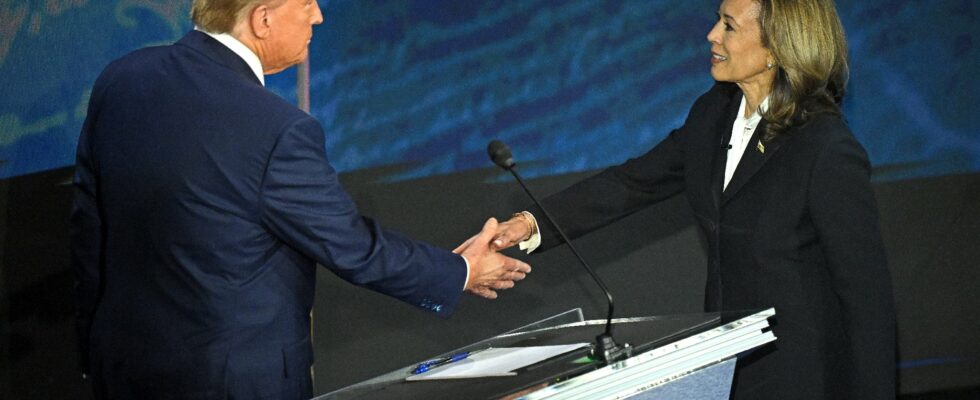A few minutes after the end of the presidential debate between former President Donald Trump and current Vice President Kamala Harris, it was already possible to know the public opinion. Not through a miraculous poll, but thanks to the biggest bet in the world, on which 230 million dollars of bets accumulate. Harris’ chances jumped from 46% to 50% in a few hours after the televised exchange and the support of the singer Taylor Swift. At the end of August, this bet had the honor of being integrated into the Bloomberg financial terminal among the polls of prestigious institutes.
The idea of prediction markets is not new. Bettors buy a stock on a given outcome in an event, from the winner of the US presidential election to the size of the next interest rate hike by the Fed to whether Lana Del Rey and her boyfriend will break up before October. Outcomes that are more likely to happen are traded at higher prices, so there is less profit in buying them. Losers, on the other hand, get nothing. Proponents of prediction markets believe they provide better information than polls because people think more about the quality of their prediction when there is money – or cryptocurrencies – on the line.
The Polymarket prediction platform was founded in 2020. It processed a few million dollars in bets until last January, when the figures skyrocketed from 30 million to 475 million in August. This is when campaign managers and political analysts, looking for leading indicators, have seized on the tool. Donald Trump has touted his Polymarket odds on his social media app, Truth Social.
Predictions and cryptocurrencies
Aside from the huge pull effect of the presidential election, it’s not easy to understand Polymarket’s success compared to its decentralized successors like Augur. Like Augur, Polymarket grew up within the cryptocurrency community. Polymarket is built on Polygon, an Ethereum-compatible platform. Today, customers who want to transact on Polymarket must go through the stablecoin USDC, based on the dollar. But soon a credit card will be available, suggesting an explosion of the community, which is now 64,000 active people.
The advantage of using blockchain technology, as opposed to a centralized system like Kalshi and PredictIt, based in New York and New Zealand respectively, is the apparent impartiality of the decisions. Disputes that may arise from the interpretation of the realization of a bet are settled through a vote based on the number of tokens held. Once the event is resolved, smart contracts automatically distribute the payments to the winning shareholders. This does not prevent the platform from intervening as a last resort if market manipulation appears, as was the case with the involvement of Donald Trump’s 18-year-old son Barron in the launch of the memecoin DJT.
Prediction markets, which are similar to futures contracts, are under the oversight of the Commodity Futures Trading Commission (CFTC). In January 2022, the CFTC ordered Polymarket to pay a $1.4 million civil penalty for operating in the United States without registration. As part of the settlement, the company promised to cease its services in the United States, while continuing to operate abroad.
Last year, the CFTC banned Kalshi from listing contracts on the upcoming congressional oversight, saying they amounted to illegal gambling. Kalshi then filed a lawsuit, which he won on September 6. Although the CFTC can appeal, Kalshi, who was barred from this year’s election betting boom while the case was pending, can now get a piece of the pie in the final two months leading up to the election. In a sign that legal risk is not really scary, Polymarket has convinced high-profile investors, including Peter Thiel’s Founders Fund and Ethereum co-founder Vitalik Buterin, to back him, totaling $74 million in funding.
.
